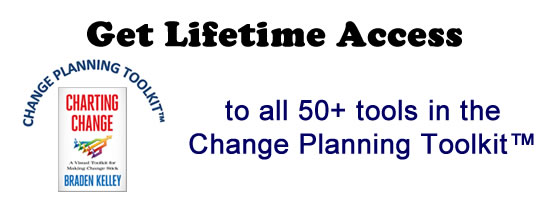How the U.S. government can boost startups, innovation, and jobs!

The Jumpstart Our Business Startups (JOBS) Act was signed into law by President Obama in May 2012. The idea was to relax regulations that prevented or slowed early stage investments by non-institutional investors. One of the main achievements of the new law was to allow crowdfunding. Until that point, private investment was limited by the SEC to accredited investors, and only up to 50 of those, before the company had to file for an Initial Public Offering (IPO) and become a public company. The IPO process is very expensive, and with increased regulations of public companies, many prefer to remain private. With the significant drop in Venture Capital investment in early stage startups, angel investments and crowdfunding are critical to the success of startups.
But while crowdfunding was added by the 2015 revision of the SEC regulation 506, it still has some serious limitations. The SEC warned investors of the risks associated with crowdfunding investments:
“Being able to invest at the early stages of a venture exposes investors to risks that may not be as prevalent with investments in publicly listed companies. For example, investing in a crowdfunding opportunity may come with increased speculative risk in connection with whether the venture succeeds at all as well as the increased illiquidity associated with investing in a company not listed on a stock exchange,” said the SEC in an Investor Bulletin.
As a result, the SEC had put the following limitations:
- Investors with less than $107,000 in annual income OR net worth can only invest the greater of $2,200 or 5% of the lesser between their annual income or net worth. The maximum that such investor can therefore invest is $5,350 annually.
- Investors with more than $107,000 in annual income AND net worth can only invest up to 10% of the lesser between the two.
- Either way, no investor can invest more than $107,000 a year through crowdfunding.
- Investors with net worth (excluding primary residence) of more than $1 million, or who earned an income of $200,000 (or $300,000 together with a spouse) in each of the prior two years and reasonably expect to make the same (or more) this year meet the SEC definition of an Accredited Investor, and are excluded from the SEC restrictions on crowdfunding.
So, if you make $199,999 a year (or $299,999 with your spouse), and have a net worth of $999,999, you are limited in your investment by the crowdfunding regulations, and can therefore invest no more than $19,999 annually.
Many startups, to avoid the hassle of having too many early stage investors, require a typical investment of $31,500, and often put a minimum of $25,000, $50,000, or more. Because of being that one dollar short, you cannot invest in them.
So what is it that makes you so much smarter and capable of comprehending risk enough to make early stage investment if you earn that one extra dollar? Probably nothing.
At the same time, there are no such restrictions on investing in many other risky investments such as mutual funds, commodities, or public companies, as long as they have the right paperwork, paperwork you are most likely never going to read. No matter how much money you make, or what your net worth is. As long as someone can claim that they warned you somewhere.
Moreover, are there any laws or regulations preventing you from investing in risky real-estate deals? Bitcoins? How about spending all your money in a casino, or at the racetrack? Absolutely none.
Startup companies are not bound by orthodoxies and “how we do things around here.” Startups are the ones that disrupt markets with radical innovation. People are more creative in startups, and those are the reasons why startups generate more innovation than mature companies.
Furthermore, research based on papers written by economists for the Kauffman Foundation suggested that startup companies (age 1 to 5 years) represent 64% of US job creation. Investing in those startups would generate more jobs than any other investment.
The government should therefore relax the rules limiting the amount of investment that can be made through crowdfunding (or any other easy, friction-free method) in startups. If the government wants to make sure those investors who only make $199,999 in annual income are aware of the risks, have them sign a release form, releasing the government (and even the company) from liability due to the risk involved in startup investment.
Not only this will grow our economy–it will generate a lot more jobs.
I’m off my soap box now…
Wait! Before you go…
Choose how you want the latest innovation content delivered to you:
- Daily — RSS Feed — Email — Twitter — Facebook — Linkedin Today
- Weekly — Email Newsletter —
 Dr. Yoram Solomon is an inventor, creativity researcher, coach, consultant, and trainer to large companies and employees. His Ph.D. examines why people are more creative in startup companies than in mature ones. Yoram was a professor of Technology and Industry Forecasting at the Institute for Innovation and Entrepreneurship, UT Dallas School of Management; is active in regional innovation and tech transfer; and is a speaker and author on predicting technology future and identifying opportunities for market disruption. Follow @yoram
Dr. Yoram Solomon is an inventor, creativity researcher, coach, consultant, and trainer to large companies and employees. His Ph.D. examines why people are more creative in startup companies than in mature ones. Yoram was a professor of Technology and Industry Forecasting at the Institute for Innovation and Entrepreneurship, UT Dallas School of Management; is active in regional innovation and tech transfer; and is a speaker and author on predicting technology future and identifying opportunities for market disruption. Follow @yoram
NEVER MISS ANOTHER NEWSLETTER!
LATEST BLOGS
21 Common Innovation Myths & Misconceptions Debunked
As all of us working on innovation know, it’s quite an opaque topic that many innovators and organizations don’t talk…
Read MoreShould Innovation Be Part of Everyone’s Job?
EPISODE SEVEN – Ask the Consultant Live from the Innovation Studio comes EPISODE SEVEN of a new ‘Ask the Consultant’…
Read More



